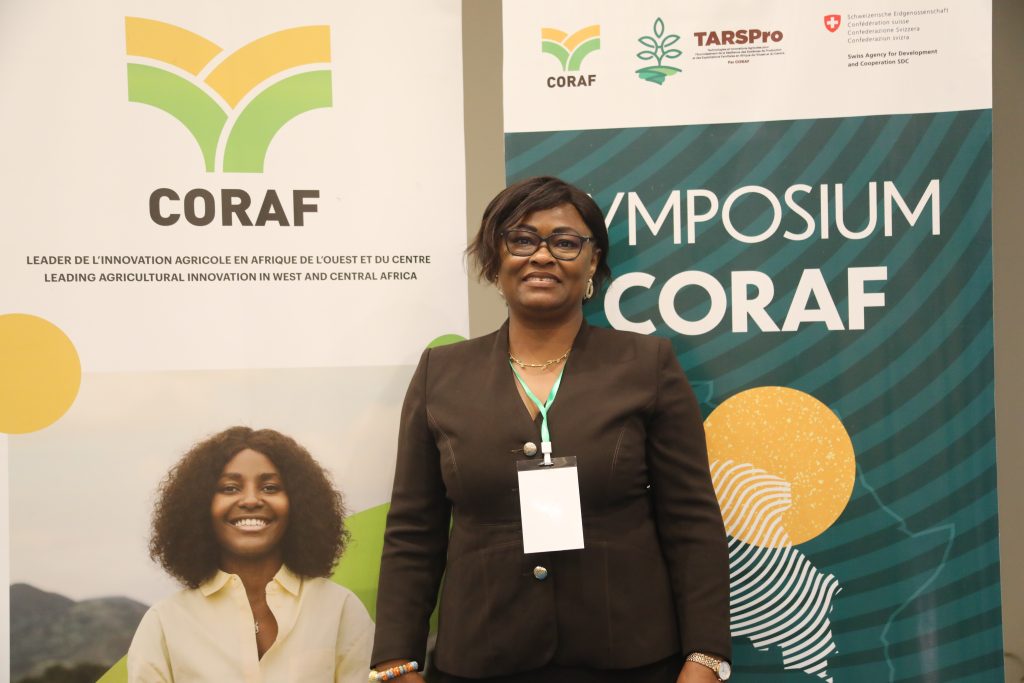The Eminent Entomologist: Mauricette N’GORAN OUALI, experienced researcher in African Agricultural Research
In this month dedicated to women, CORAF is shining the spotlight on inspiring figures who are making their mark on African agriculture. Among them is N’GORAN San-Whouly Mauricette OUALI, a seasoned expert in agricultural entomology. She is currently Vice-President of CORAF’s Scientific and Technical Committee (CST) and Director of the Entomology and Ecosystem Management Pedagogical and Research Unit (UPR) within the Biosciences UFR of the Université Félix Houphouët-Boigny in Côte d’Ivoire. In this portrait, she tells us about her inspiring career.
1- Can you tell us about your career in agricultural research?
After my Master’s degree in Animal Biology in 1994, I was selected for a post-graduate diploma (DEA) in general entomology in 1997. This training provided me with crucial skills in the science of insects and their importance in agronomy. In 2005, I obtained my PhD in agricultural entomology, marking the start of almost 20 years’ involvement in plant health. My research interests include integrated pest management, biological control, agroecology, food and feed insects, technology transfer, agricultural risk management and food and nutrition security, and poverty alleviation for producers.
Experienced in knowledge and technology transfer to farmers, I am a consultant to ANADER, FIRCA, The Côte d’Ivoire Cotton and Cashew Council, GIZ, CIRAD and CORAF. I have published around sixty scientific papers to date, including a book and several scientific articles, some of which have appeared in the MDPI journal.
2- As a woman researcher, what challenges have you encountered and how have you overcome them?
My career as a woman researcher has been punctuated by challenges that I have overcome with unshakeable determination. During my doctoral years, I faced intimidation from male colleagues who questioned the compatibility of agricultural research and femininity. Family pressures, including the loss of my father and the impatience of my mother and in-laws, added complexities to my journey. As a researcher, teacher, wife, mother and daughter, juggling family and professional responsibilities while tackling assignments often surrounded by men has not been easy. Despite these obstacles, my willpower, determination, and courage have been the driving forces behind my success. My deep-rooted motivations, rooted in a love for my work and a desire to bring solutions to farmers, strengthened my self-confidence. Open communication with my family and the unconditional support of those closest to me were key elements in my ability to meet these challenges. Today, I am an inspiring role model, demonstrating that it is possible to reconcile professional and personal life while leaving a significant mark on the field of agricultural research.

3- Who are your role models or sources of inspiration in the field of agricultural research?
Firstly, the late Professor FOUA BI Kouahou, a great agronomist and agricultural entomologist, my thesis supervisor, and Professor TANO Yao, one of my trainers, also an agricultural entomologist. They made me love agricultural entomology and especially meticulous work; then Professor Isabelle GLITHO ADOLÉ, a brave lady, Professor of Agricultural Entomology, Honorary Dean of the University of Lomé (Togo). They have encouraged and supported me to this day.
4- What advice would you give to young women aspiring to a career in agricultural research?
Well, nothing’s easy, but it’s crucial to have clear objectives and to work hard to be competent. You must dare to seize opportunities, remain determined, resilient with respect for others and faith in God.
It’s possible to combine life as a woman with a fulfilling career in agricultural research. Passion for the field and concrete results are immediate rewards.
Professor N’GORAN OUALI’s journey is an inspiration, illustrating how determination, passion and resilience can overcome obstacles. By celebrating women like her, we honor the exceptional contribution women are making to the future of agriculture on the African continent.